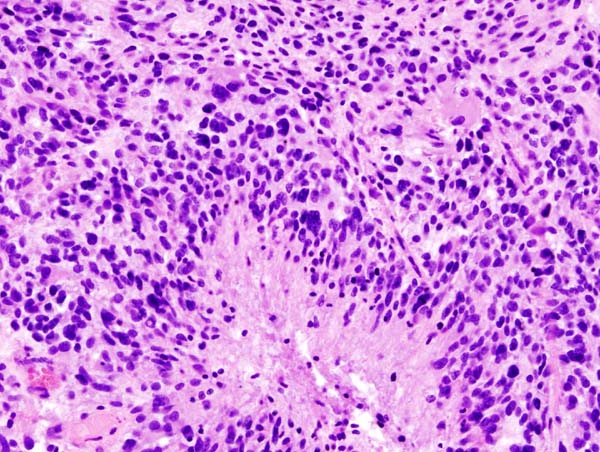
Off-the-shelf allogeneic cell therapies company Century Therapeutics has acquired glioblastoma (GBM)-focused Empirica for an undisclosed sum.
The acquisition was organised and spearheaded by Century’s chief strategy officer Janelle Anderson. According to the terms of the deal, a subsidiary called Century Therapeutics Canada will be created and based in Hamilton, Ontario, which is where Empirica is currently located.

Discover B2B Marketing That Performs
Combine business intelligence and editorial excellence to reach engaged professionals across 36 leading media platforms.
As the two companies had already laid some groundwork prior to the pandemic hitting, it was easy to build on “what we had already established through video conference meetings, text and email conservations” and “reach consensus on what we think will be a very advantageous union for GBM patients,” notes Empirica CEO and co-founder Dr Sheila Singh, who is also a paediatric neurosurgeon at McMaster Children’s Hospital in Ontario.
Understanding Century’s off-the-shelf iPSC approach
Founded in 2018, Century aims to “develop curative cell therapy products for cancer that overcome the limitations of first-generation autologous cell therapies”, such as CAR-Ts, according to the company’s CEO Lalo Flores. Its solution is developing allogeneic, off-the-shelf, induced pluripotent stem cell (iPSC)-derived therapies.
“iPSCs are adult stem cells that can be manipulated to differentiate into virtually any other kind of cell, including immune cells which can be delivered immediately to patients,” says Flores. “We believe that our off-the-shelf cell therapies will not only expand patient access to cell therapies, but move the entire field of cancer care forward.”
From the outset, Century wanted to target both solid tumours and blood cancers; to date, CAR-T therapies have struggled to combat solid tumours, and have been approved exclusively for certain types of blood cancer. So, Flores notes, “gaining access to Empirica’s GBM therapies allows us to take the first step on the road to eventually tackling solid malignancies throughout the human body”.

US Tariffs are shifting - will you react or anticipate?
Don’t let policy changes catch you off guard. Stay proactive with real-time data and expert analysis.
By GlobalData“Century has gained not only Empirica’s GBM platform, but also its experienced and knowledgeable team , and this puts us in the position to make major strides in building our space in the cell therapy field,” Flores concludes.
Empirica’s work on GBM
GBM is a common and deadly form of brain cancer, which has been plagued by treatment resistance, making novel treatments urgently needed.
Also founded in 2018, Empirica aims to address this problem, and so created a genomics platform that when combined with unique patient-based models of brain cancers, like GBM, enables the discovery of new therapeutic options linked with a patient’s own tumour biology.
“Empirica has established methods to initiate, propagate and utilise early-passage, serum-free, brain tumour patient-derived cell lines to discover tumour-associated markers of treatment-resistant cells,” explains Singh.
In GBM, the company has “uniquely adapted the existing treatment protocol for newly diagnosed [patients]” using “mice engrafted with human brain tumours”.
Singh adds: “This mouse-adapted therapy model has the distinct advantage of generating recurrent, human, treatment-resistant GBM, which can be comprehensively profiled at multiple time points during the course of therapy and can faithfully predict clinical outcomes.”
Using these models, Empirica has validated the glycoprotein CD133 as an established marker of cancer stem cells and a promising target for recurrent GBM. Using high-affinity CD133 antibodies, the company has engineered second generation CAR-T cells to create its first product, ET001. It has been successful in pre-clinical models of treatment-resistant GBM so far.
The company’s expertise in GBM will provide Century with “access to a comprehensive collection of patient-derived brain tumour samples” to allow “biomarker identification as well as preclinical evaluation of novel allogeneic cell therapies”, says Singh.
Flores adds: “Matching Empirica’s GBM assets with Century’s iPSC immune cell platforms and drug development know-how will enable us to develop novel cell therapies for GBM, a very devastating cancer of highly unmet medical need.”




